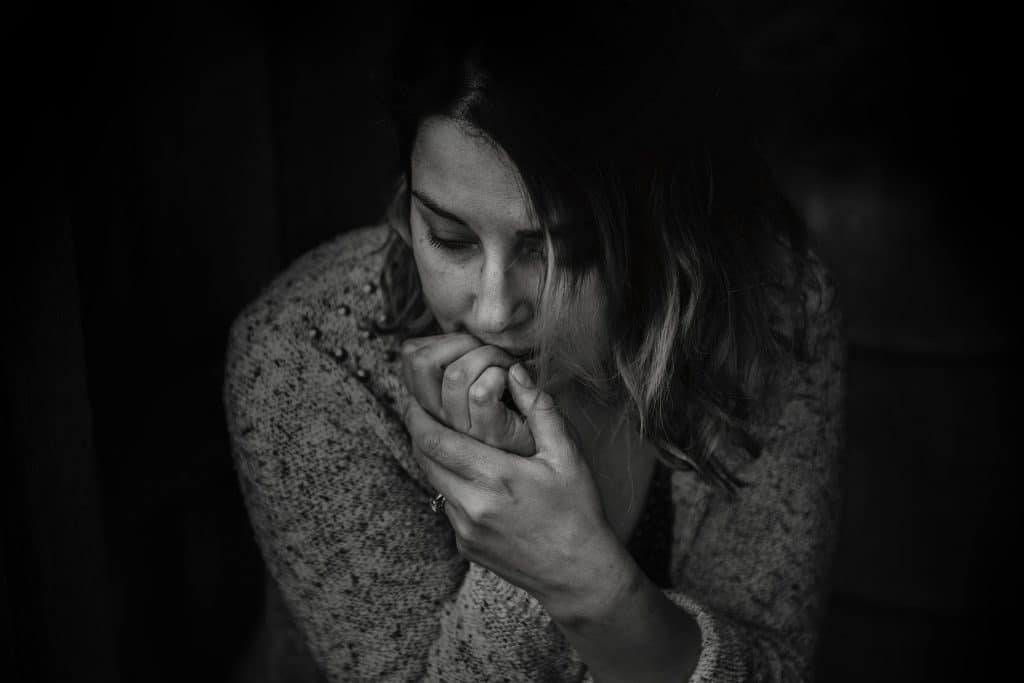Post-Traumatic Stress Disorder (PTSD) is referred to as intense anxiety, stress and fear following experiencing or witnessing a traumatic (e.g. extremely violent and/or life-threatening) event. In some cases, the trauma may have occurred recently, and in other instances, it may have occurred long ago. Depending on the situation, the trauma may have been experienced directly by a person themselves, or in some cases, by someone they love or a person nearby to them. An individual affected by post-traumatic stress disorder can continue to feel overwhelmed and full of terror, long after the conclusion of a traumatic event.
Feelings of fear, shock and anger, as well as experiencing sadness and grief following trauma is not uncommon. However, in the majority of cases, with support from loved ones, these feelings shall fade over time. This is not the case for a person suffering from PTSD, rather, these difficult emotions remain intense and negatively impact their day-to-day life.
The following are key examples of traumatic events that may induce post-traumatic stress disorder: experiencing a life-threatening situation, witnessing death, severe injury, serious accidents (such as a vehicle collision), physical violence, sexual assault, torture, fire and natural disasters (for example, floods and cyclones).
In this article, we will take a look at the signs and symptoms of post-traumatic stress disorder, risk factors for its development, how you can support someone suffering from PTSD, and things you can implement to help you manage post-traumatic stress disorder.
Signs and Symptoms of Post-Traumatic Stress Disorder
A person who is battling post-traumatic stress disorder may experience a number of different symptoms. Particular thoughts and feelings, locations, people and/or activities that are connected with the traumatic event that happened may be avoided due to triggering distressing memories of the trauma. PTSD can cause an individual to relive the traumatic event via means of persistent distressing nightmares or flashbacks of the trauma that occurred. As a result, emotional and physical symptoms of anxiety may be experienced, such as panic, excessive perspiration, increased heart rate and shortness of breath.
Feeling detached from life (including loved ones, work and previously enjoyable activities) in addition to feeling emotionally numb is not uncommon for sufferers of post-traumatic stress disorder. An intense and persistent fear of danger can result in some individuals, feeling like they are unable to relax, due to the apparent need to be on high alert. As a result, insomnia may also be evident. Some people suffering from PTSD may also feel agitated, irritable and experience regular angry outbursts.
Post-traumatic stress disorder can make it difficult for a person to empty their mind of consistent thoughts regarding “what if” scenarios, and disaster thinking may occur. They may feel hopeless, helpless and have lots of difficulty concentrating when necessary. In some instances, a person struggling with PTSD may try to silence their distressing memories and thoughts by engaging in dangerous and destructive activities, and/or through the consumption of drugs or excessive amounts of alcohol.
Risk Factors for the Development of Post-Traumatic Stress Disorder
There are a variety of risk factors which may increase an individual’s chance of developing PTSD following the conclusion of a distressing and traumatic event. An individual who is currently suffering from a mental health illness (such as anxiety and/or depression) or has done so in the past may be at increased risk of developing post-traumatic stress disorder. Lack of support from close family and friends may also increase their risk. Having experienced some sort of trauma in the past or being exposed to persistent, high stress can also escalate a person’s risk of developing post-traumatic stress disorder.
How to Support Someone with Post-Traumatic Stress Disorder
Post-traumatic stress disorder can not only dramatically affect the day-to-day life of a sufferer directly, but it can also negatively impact an individual’s interpersonal relationships. Close family and friends may feel overwhelmed, disconnected and uncertain as to how they can best support a loved one struggling with PTSD.
Thankfully, there are a number of ways you can support a friend or family member who is struggling with post-traumatic stress disorder, as follows:
Educate Yourself About PTSD
By learning as much as you can about the symptoms of post-traumatic stress disorder and how it affects a person, alongside the different treatment options available, you will put yourself in the best position possible when it comes to understanding what your loved one is experiencing and be much better equipped to assist them.
Be a Good Listener
Taking the time to sit and talk to a loved one suffering from post-traumatic stress disorder, without judgement, can be very beneficial for a person struggling with PTSD, as it can cause them to withdraw from friends and family and avoid talking about the trauma. When your loved one feels ready to reach out and talk, you may find they repeat the details of the trauma over and over again. This is not uncommon and can form part of the healing process. The best thing you can do is to sit comfortably and patiently listen to what they have to say, without offering advice or telling them to simply forget what happened.
Anticipate and Manage Triggers
A trigger is something that causes your loved one to recall the traumatic event, and may include a place, person, activity or even a material object. When exposed to a trigger, your loved one may experience distressing flashbacks of the event and feel panicked, which sometimes can result in an emotional outburst. Some triggers can be easier to identify (such as places) and comprehend than others (such as particular smells or sounds).
By becoming aware of what triggers memories of the traumatic event for your loved one, you can try to work together to avoid them (where appropriate), as well as devise a plan as to the best way to respond to triggers when they arise.
Stay Calm During Outbursts
Post-traumatic stress disorder can cause an individual to feel irritable and emotional, which in some cases, may result in mood swings and/or angry and emotional outbursts. The constant state of stress and need to feel alert at all times can mean your loved one may overreact to seemingly normal, day-to-day situations or challenges.
Take some time to learn the signs of an emotional/angry outburst. Perhaps your loved one becomes very agitated very quickly, clenches their jaw or fists, or gets flushed in the face. Learning their signs means you can try to diffuse the situation and save an emotional/angry outburst from occurring. Where an outburst does eventuate, try your best to remain calm and give your loved one space. Offer to assist them, where applicable, but keep your safety your first priority. If you feel threatened and in danger, do not hesitate to call for help.
Support Them in Their Treatment
In many cases, a person suffering from post-traumatic stress disorder may not realise they require professional help and support in order to cope with life following the conclusion of the traumatic event, and that receiving professional assistance forms a very important part of their recovery process.
Gently encourage your loved one to seek help from a professional experienced in treating PTSD and support them as best you can throughout their treatment and recovery journey.
Things You Can Implement to Help You Manage Post-Traumatic Stress Disorder
Seek Professional Help
Beyond reaching out to friends and family about how you are feeling, seeking professional help regarding post-traumatic stress disorder is essential. A professional trained in treating post-traumatic disorder can work with you to overcome PTSD and free you from the holds of this mental health illness.
Acknowledge Your Experience and Current Situation (i.e. PTSD)
When we experience an especially traumatic event, such as a serious car accident, it can be helpful to acknowledge the trauma we have experienced. Once you are able to acknowledge what happened and that you are struggling with post-traumatic stress disorder, you can work together with a professional therapist as to how to overcome your ongoing intense anxiety, stress and fear associated with the traumatic event.
Learn as Much as You Can About Post-Traumatic Stress Disorder
Learning about what PTSD is, its symptoms, how it affects an individual and different treatment options can help you uncover what you can expect over your journey to recovery from post-traumatic stress disorder.
Explain Your Situation to Close Family and Friends
Explaining what you are experiencing, including your symptoms and how post-traumatic disorder is affecting your day-to-day life can help the people close to you to understand your situation, in addition to how they may best be able to support you.
Take Good Care of Yourself (Healthy Eating, Gentle Exercise and Adequate Sleep)
When struggling with a mental health illness, such as post-traumatic stress disorder, it can feel overwhelming to take proper care of ourselves. However, prioritising healthy eating (i.e. a diet high in fresh and nutritious wholefoods), gentle exercise and getting enough sleep each night (roughly 7 to 8 hours, for adults) can help you to feel calmer, brighter and more energetic throughout the day, and can help to reduce feelings of irritability and anger, as well as mood swings.
Try to avoid consuming excessive amounts of processed foods and/or alcohol and drugs. Putting together a relaxing evening routine prior to going to bed (otherwise referred to as ‘sleep hygiene’) can help you to get to sleep and sleep more soundly. For more information on how to practise good sleep hygiene, please read our article ‘Improve Your Sleep: How to Practice Good Sleep Hygiene’ by clicking here.
Seek Support from a Trusted Family Member and/or Friend
Support from a family member and/or friend whilst seeking treatment for post-traumatic stress disorder can be immensely helpful, and save you feeling isolated while you are going through a difficult time. Seek support on a regular basis from a loved one, who will listen patiently (and without judgement) to what you have to say, and who can assist you in your recovery journey (for example, can accompany you to appointments).
Additionally, simply spending time with your loved ones can benefit you greatly. Company from the people you love most can prevent you from becoming socially withdrawn and isolated from others and can help to comfort you when you are struggling.
Take Time to Unwind and Do Things You Enjoy
When we are overcome with stress, anxiety and fear, engaging in a relaxing activity or an activity we really enjoy (such as a hobby) can help us to relax and focus our mind on something enjoyable instead of our worries. Do your best to allocate yourself some time each day to relax. You might like to consider activities such as mindfulness meditation, reading or playing an instrument.
Spend Time Outdoors
Getting outdoors and into nature can be especially helpful when struggling with post-traumatic stress disorder. Getting outside amongst nature can help us to: switch off and disconnect from the world, immerse ourselves among the beauty and joy of nature (such as listening to birds chirping) as well as give us the opportunity to spend time connecting with the people we love.
Ease Back into Your Routine and Responsibilities
After experiencing a traumatic event, it is very important to be gentle with yourself. When we are troubled with distressing thoughts and emotions, we cannot expect ourselves to function at our normal level of productivity. Rather, be gentle with yourself and try not to take on any big projects or unnecessary stress. Focus on making small decisions that make you feel good, such as preparing a simple, healthy breakfast for yourself, to get your day started. Over time, you can begin to work your way back into things as you normally would. When you feel yourself struggling, don’t be afraid to reach out for help from others.
Post-traumatic stress disorder when left untreated can make day-to-day life very challenging and miserable. It is important that where a person is suffering from PTSD, they seek treatment as soon as possible, so as to avoid symptoms (and the negative impact it can have) from worsening.
If you or a loved one are battling with post-traumatic stress disorder, reach out to our friendly team at Blissiree Pty Ltd. We can help you on your road to recovery and assist to free you from trauma-related stress, anxiety and fear.





